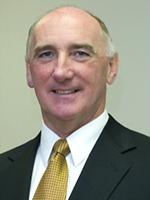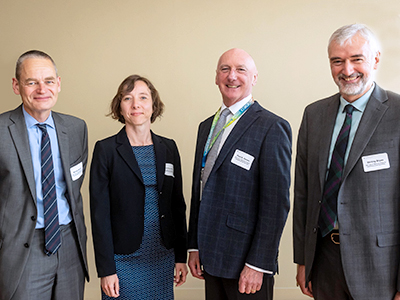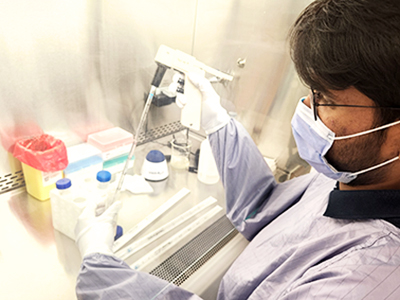
Researchers are developing a national epitope-matching protocol to reduce organ transplant complications.
Advanced genetic matching technology could result in significantly lower rates of organ transplant rejection, according to ongoing award-winning research led by Vancouver Coastal Health Research Institute researcher Dr. Paul Keown.
“Epitope-matching may soon enable us to limit the use of potent immunosuppression medications and see virtually no organ rejection among organ transplant patients,” states Keown.
“Our research may have implications well beyond the transplant community, including for other immune system-related conditions, such as cancer and diabetes.”
Epitopes are part of a critical protein called HLA, which the body uses to identify itself from foreign entities. When the immune system recognizes the presence of foreign HLA, or epitopes, such as from a donor organ, they strike into action and attack. This immune response can be particularly dangerous to organ transplant patients, as it can lead to organ rejection, aka organ failure, the need for another organ transplant and potentially death.
Anti-rejection medications administered to patients who receive an organ donation are designed to suppress patients’ immune systems to avoid this immune response. These medications may need to be taken long-term, and have been linked to negative side effects, such as infection, malignancy, skin disease and heart disease.

Matching patients with donors who share epitope similarities can dramatically reduce the probability of organ rejection to almost nothing, and may reduce or preclude the need to use immunosuppressant medication, notes Keown.
“Our research is introducing a new form of precision medicine for transplant patients that could ultimately reduce the need for subsequent organ transplants.”
In collaboration with researchers around the globe, Keown and his team in B.C. are working to develop the first national epitope-based matching program in Canada, which will match organ recipients with the best possible donor organ.
Room for improvement in organ transplant matching
While around 3,000 Canadians received an organ transplant in 2022, by the end of that year, almost 4,000 Canadians were still on transplant waitlists. Tragically, 39 per cent of the 701 Canadians removed from organ transplant waitlists in 2022 passed away while waiting.
To turn the tide, Keown and his research team’s national epitope-matching program is refining the genetic matching process using accelerated clinical trials that incorporate historical organ transplant patient data.

“We have excellent data in B.C. that has followed transplant patients’ care journey for over 35 years, including their assessments and whether they experienced organ rejection or failure,” says Keown.
Using prior patient data, researchers were able to find around five to 10 previous organ transplant patients whose epitope matched those of present-day patients, says Keown. The use of these ‘synthetic controls’ of organ patient data may well provide a new model for future research, he adds.
“We found only a five per cent organ rejection rate among past patients whose epitope matched that of their donor organ, versus around a 30 per cent chance of rejection among patients whose epitope was not a good match with their donor organ,” says Keown.

“Our process has reduced the timeframe for genetic sequencing from two weeks to only one day,” says Keown. “Based on a simple blood test, our genetic analysis will also cost around 50 per cent less than current approaches.”
Genetic testing is useful not only for epitope-matching, but also to identify patients with a higher-than-average immune response to pathogens. Elevated immune responders are more likely to experience organ failure soon after transplantation or years down the line.
"Validating whether someone is at high- or low-risk of organ transplant rejection will help us create the best personalised care plan for each patient.”
Patients at greater risk of developing an immune response may benefit from care plans that include vaccination against common immune-response triggering viruses, such as influenza.
“By reducing the risk of immune response, we can give organ transplant patients the best chance at long-standing organ health with fewer complications,” says Keown.


